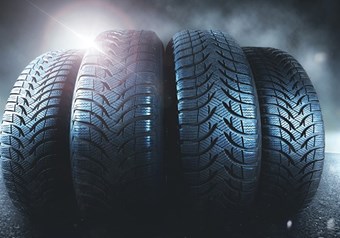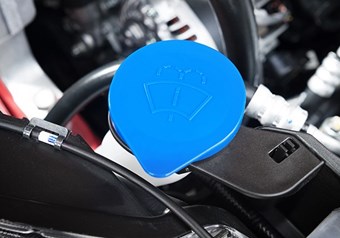
Seasonal Advice
Here, we will explore how to prepare your car for winter driving and the steps you can take to do so.
Seasonal Car Advice
Preparing your car for winter driving is essential to ensure a smooth and safe journey. With the arrival of winter, there are changes in weather and driving conditions that can affect your vehicle's performance. Taking the time to check and maintain your car can prevent breakdowns, improve fuel efficiency, and ultimately save you time and money.
Driving Tips
Prepare your vehicle, top up your screen wash and check functioning before setting off. This includes checking that your lights are working.
Check your engine oil, sufficient oil helps regulate the temperature of your engine for long journeys.
The amount of time between oil changes varies depending on a number of factors, including the type of oil you use, the make and model of your car, and your driving habits. In general, you should change your oil every 3,000 to 5,000 miles, or as recommended by your car's manufacturer.
If you drive in dusty or stop-and-go conditions, you may need to change your oil more often. If you use synthetic oil, you can extend the interval between oil changes. However, it is always best to consult your car's owner's manual for the specific recommendations for your vehicle.
Here are some of the factors that affect how often you should change your oil:
- The type of oil you use: Conventional oil breaks down more quickly than synthetic oil, so you will need to change it more often.
- The make and model of your car: Some cars require more frequent oil changes than others. Check your owner's manual for the specific recommendations for your vehicle.
- Your driving habits: If you drive in dusty or stop-and-go conditions, you will need to change your oil more often. This is because the dust and debris in the air can contaminate the oil and cause it to break down more quickly.
- The type of fuel you use: If you use premium fuel, you may be able to extend the interval between oil changes. This is because premium fuel contains detergents that help to clean the engine and keep the oil clean.
It is important to change your oil at the recommended intervals to keep your engine running smoothly and prevent costly repairs.
Checking the tread depth of your tyres is very important. Research indicates the most tyres on the road are either under inflated or below the legal limit of 1.6mm tread depth.
It is recommended that you check your tyres every two weeks or before you make any long journeys. We are on hand to assist you with a tyre health check should you need us to, and we can advise the correct approved tyre for your car if a replacement is required.
Tyre pressure can fluctuate throughout the year, especially over the colder months. To prepare your car this autumn, make sure to check your tyre pressure and adjust it as needed for the colder weather.
Rotating your tyres helps to ensure that they wear evenly. This is especially important in winter months, if you have driven a lot on snow and ice.

Check your Tyres
Make sure to check your brake fluid and power steering fluid levels. It's also a good idea to have your coolant flushed.
A good car wash can help to remove any dirt or grime that may have accumulated on your car during winter and help to avoid the advance of rust on your vehicle.
Stop, start driving whether it be cruising around the city streets or stuck in motorway traffic takes its toll on your brakes more than the number of miles you travel.
Brake pads can wear down over time. If your brakes are squealing or making a grinding noise, it's time to have them checked by a mechanic.
Make sure your wiper blades are in good condition. They will likely have been used a lot over the winter months - if they squeak when they wipe or they are leaving streaks, they are likely to need replacing.
Keep a pack of essentials, just in case: Screen wash top-up, top-up oil, phone charger, spare tyre/tyre sealant and adblue. A blanket and torch is also advisable.

Air-Conditioning Service
Air-Conditioning Facts
Your Air Conditioning requires regassing every 2 years as 10-15% is used before it’s even turned on.
Having your Air Conditioning re-gassed decontaminates your system, removes any bacteria that could potentially filter back through and be released into your car.
You should maintain your Air Conditioning even in the colder months as it helps demist your windows quicker.
A clean Air Conditioning system reduces emissions as dirty or damaged air filters reduce the air flow to the engine affecting the cars air fuel balance.
Replacing a clogged air filter can increase fuel efficiency improving acceleration
Not regassing your Air Conditioning will leave it less efficient and less effective when you want to cool down or demist your windows.
.jpg?height=237.94453507340947&heightratio=0.6998368678629691&mode=crop&upscale=true&width=340)
Battery Maintenance
Did you know?
A healthy battery should last at least 2 weeks without needing to be started up to re-charge (this may reduce in colder temperatures), try to avoid excessive “wake-ups” of your car’s electrical system and avoid locking/unlocking or switching on the ignition without driving the car.
If you have any questions or issues regarding your battery, please contact your local Lloyd Service Centre who will be happy to help.
Contact Us

Important Screenwash Information
Please contact us for more information.
CONTACT US



















